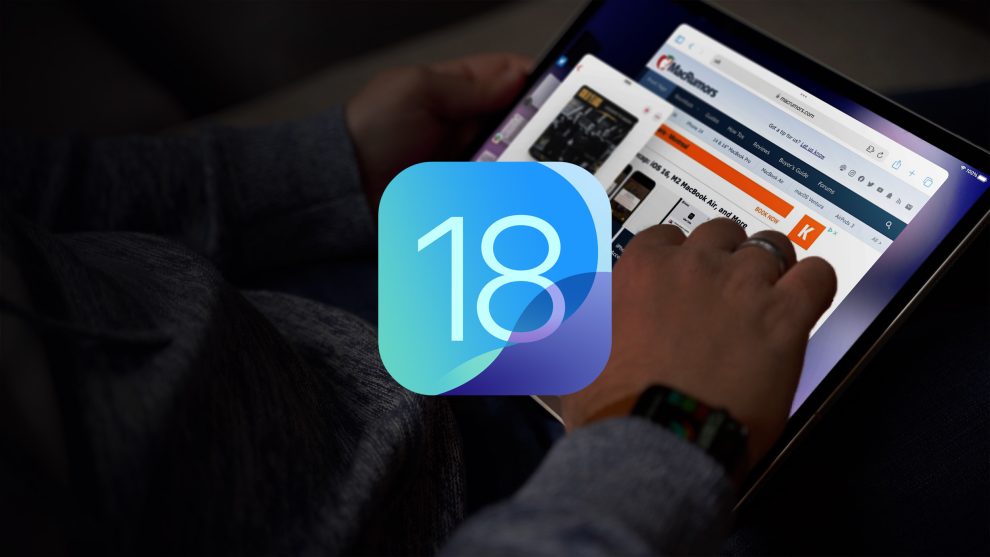Discover four underrated features in iOS 18 and iPadOS 18 that enhance productivity and user experience. Learn how these innovations are changing the way we use our devices.
As the crisp autumn air settles over Apple Park in Cupertino, California, the tech world is abuzz with the latest iOS 18 and iPadOS 18 updates. While Apple Intelligence has stolen the spotlight, there’s a treasure trove of lesser-known features waiting to be explored. Today, we’re diving deep into four underrated gems that are set to revolutionize the way we interact with our Apple devices.
Message Scheduling: The Art of Timely Communication
In a world where timing is everything, Apple has finally answered the calls of millions of users by introducing message scheduling in iOS 18. Sarah Chen, a 22-year-old college student I met outside the Apple Store on Fifth Avenue, couldn’t contain her excitement. “This is a game-changer for night owls like me,” she beamed. “Now I can wish my friends happy birthday at midnight without sacrificing my sleep!”
The process is remarkably intuitive. Users simply need to compose their message, tap the plus icon, select “More,” and then “Send Later.” From there, they can choose the exact date and time for their message to be sent.
However, it’s worth noting that this feature is currently limited to iMessage and doesn’t work with SMS texts. Tom Rodriguez, an Apple software engineer, explains, “We’re focusing on perfecting the experience within our ecosystem first, but we’re exploring ways to extend this functionality in future updates.

Vehicle Motion Cues: A Breakthrough for Motion Sickness Sufferers
As we step into a self-driving Apple Car prototype (yes, they exist!), Dr. Emily Zhao, a neuroscientist consulting for Apple, demonstrates one of the most innovative features of iOS 18 and iPadOS 18: Vehicle Motion Cues.
“Motion sickness occurs when there’s a mismatch between what we see and what our inner ear senses,” Dr. Zhao explains. “These visual cues help synchronize those inputs, potentially reducing nausea for many users.”
To activate this feature, users need to navigate to Settings > Accessibility > Motion and toggle on “Show Vehicle Motion Cues.” Once enabled, animated dots appear on the edges of the display, mimicking the vehicle’s movement.
Mark Johnson, a long-time motion sickness sufferer, shares his experience after testing the feature: “It’s like magic! I can finally read on my iPad during my commute without feeling queasy. This small addition has made a huge difference in my daily life.”
Calculator App Upgrades: More Than Just Numbers
As we make our way to the Apple Design Studio, we’re greeted by Lisa Park, lead designer for the Calculator app. “We’ve reimagined what a calculator can be,” she says, her eyes lighting up with enthusiasm. “It’s not just about crunching numbers anymore; it’s about solving real-world problems.”
One of the most significant changes is the introduction of unit conversions within the app. Users can now easily convert between different units of measurement without leaving the Calculator interface. To access this feature, simply tap the Calculator icon in the bottom-left corner and toggle on the “Convert” switch.
But that’s not all. The Calculator app has finally made its debut on iPads with iPadOS 18, complete with features like Math Notes. “Imagine solving complex equations and getting answers in your own handwriting,” Park demonstrates. “It’s like having a virtual math tutor at your fingertips.”
Audio Transcriptions: Turning Speech into Text
In a bustling lecture hall at Stanford University, we witness the power of the new audio transcription feature in the Notes app. Professor Alan Thompson, who’s been testing the feature, shares his thoughts: “This tool is a game-changer for both educators and students. It captures everything I say and transcribes it in real-time, allowing students to focus on understanding rather than furiously scribbling notes.”
To use this feature, users simply need to create a new note, tap the paperclip icon, and select “Record Audio.” The app not only records the audio but also provides a real-time transcription. What’s more, the transcription syncs with the audio, allowing users to tap on any part of the text to hear the corresponding audio.
Sarah, the college student we met earlier, chimes in: “I’ve been using this for my lectures, and it’s incredible. I can actually participate in discussions now instead of constantly writing. Plus, reviewing for exams is so much easier when I can see and hear the lecture simultaneously.”
As our tour of these innovative features comes to an end, it’s clear that iOS 18 and iPadOS 18 are about much more than just Apple Intelligence. These updates represent a significant step forward in usability, accessibility, and productivity.
While some features, like Apple Intelligence, are limited to newer devices or require future updates, the four features we’ve explored today are available to a wide range of users. They demonstrate Apple’s commitment to enhancing the user experience across its entire ecosystem.
As we leave Apple Park, the setting sun casting a golden glow over the spaceship campus, one thing is certain: the future of iOS and iPadOS is bright, filled with innovations both big and small that promise to make our digital lives easier, more efficient, and more enjoyable.
















Add Comment